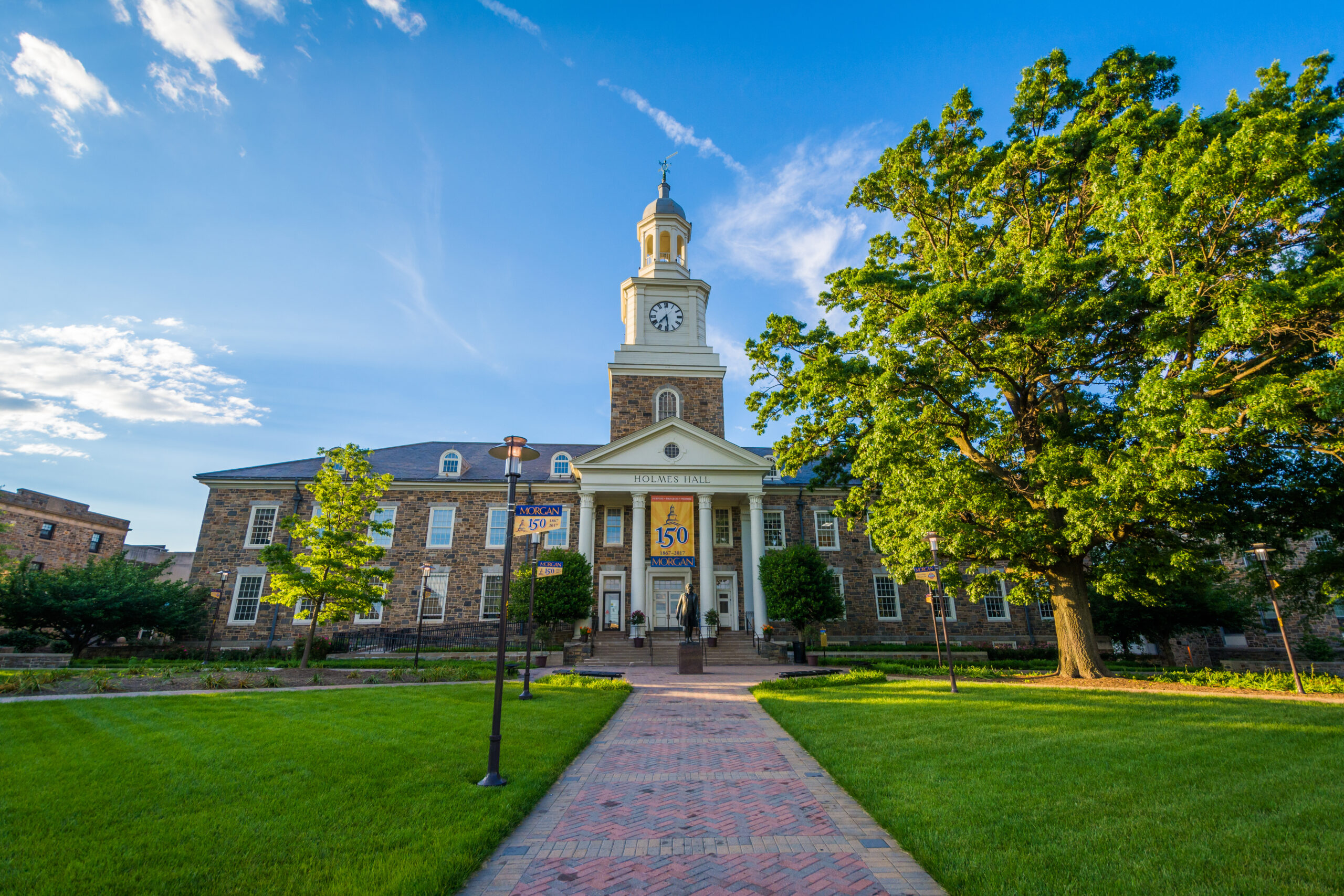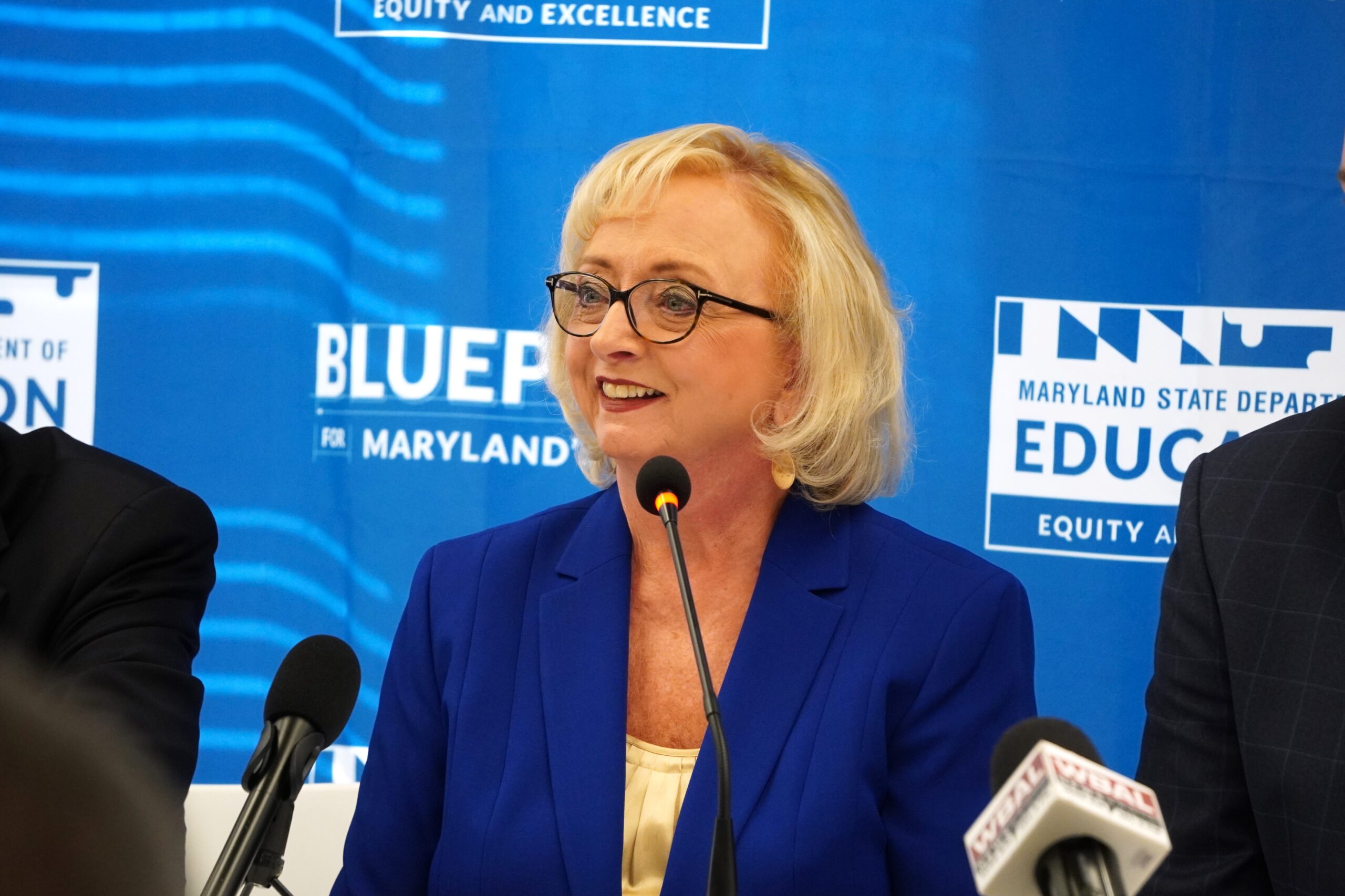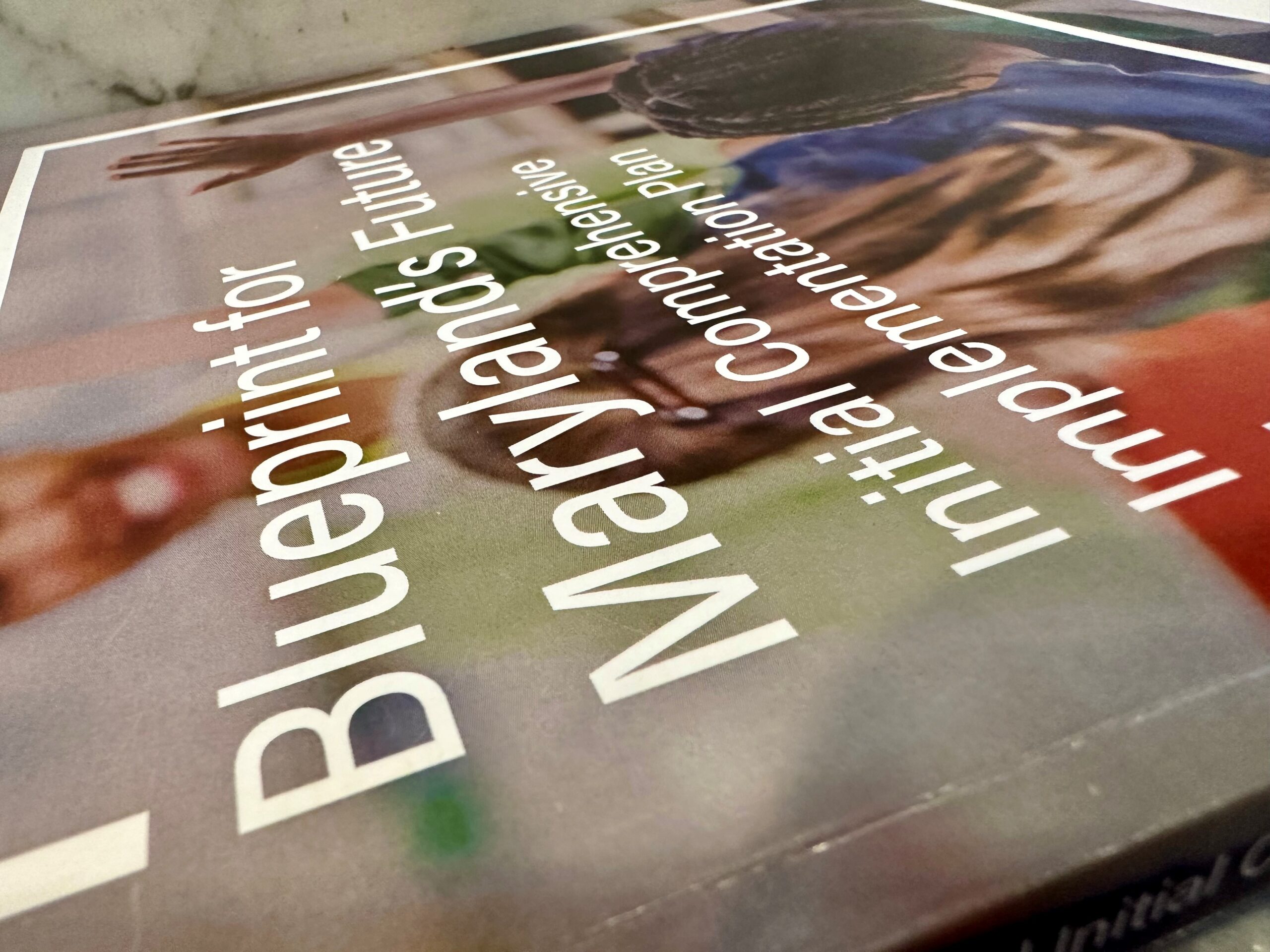Workgroup sets sights on ways to fix long-running degree duplication concerns at Maryland colleges

A legislative workgroup tasked with recommending changes to the degree approval process at Maryland’s colleges and universities started work this week, as the Maryland Higher Education Commission awaits legal advice on its most recent controversial decision.
The workgroup was formed by the General Assembly earlier this year — before the commission’s controversial decision in June to allow a new business analytics degree at Towson University over the objection of officials at Morgan State University, a historically Black campus five miles away.
The new workgroup will have to find a delicate balance between meeting students’ needs and resolving longstanding concerns about program duplication among Maryland’s formerly segregated colleges, said Sen. Ron Watson (D-Prince George’s).
There are holes that need to be filled in the state’s degree offerings — including demand for cyber and teaching programs — but revising the program review process in an equitable way will be difficult, he said.
In Maryland, degree reviews are driven by an objection process and the most common complaint is that a new program would duplicate an existing one at another institution.
“It’s very hard for anybody to say one college or university … should have that much power to say ‘Only we can offer that [degree],” Watson said.
On the other hand, “if we open it up … it will cannibalize the HBCUs, in my humble opinion,” he said.
The workgroup is looking at ways to revise the process while also honoring a settlement agreement reached with HBCU advocates two years ago in a long-running legal dispute over unnecessary duplication.
“We can’t say that we are still, as a state, in the process of fulfilling a $577 million settlement over several years and voluntarily put something in place that allows duplication or the cannibalization of HBCUs. …I think that this is the fundamental challenge of what we’re going to be asked to do,” Watson said at the first meeting of the workgroup Monday. “We’re going to have to be very systemic.”
Del. Stephanie Smith (D-Baltimore City), co-chair of the workgroup, said she didn’t want the panel to “feel constrained by the current process but to think about those levers that we would like to modify.”
She suggested that one recommendation from the panel could include the opportunity for judicial review of commission decisions in the future.
A long history
Maryland has been working toward more equitable policies in higher education for decades. In 1969, the state was one of 10 identified by the U.S. Office for Civil Rights that needed to desegregate systems of education.
In 2021, the General Assembly passed legislation to settle a lawsuit first filed in 2006 by a coalition of HBCU advocates and alumni who argued that the state had underfunded its four historically Black institutions and undercut their ability to attract students by allowing traditionally white universities to duplicate programs offered at HBCUs. (The case was filed after MHEC approved a joint MBA program at Towson University and the University of Baltimore over the objection of Morgan State, which had a program operating since the 1970s.)
The 2021 law set a $577 million increase in funding for HBCUs over a decade and also required the state to study the “capacity and capability of MHEC to conduct academic program reviews under current policies and practices.”
That review was completed by the National Center for Higher Education Management Systems (NCHEMS) in August 2022, though the findings have not yet led to changed policies.
A major finding of the study was that MHEC’s policies to grant new degree programs on a first-come basis — and relying on objections when considering whether new proposals are unnecessarily duplicative — has created distrust among the state’s higher education institutions, particularly HBCUs.
NCHEMS also concluded that the commission didn’t have the capacity to compile and analyze state workforce needs when considering new degree programs, that the review process is not strategic at a statewide level, and that MHEC has not consistently followed its own policies and timelines around objections.
The study recommends getting rid of the objection process and instead shifting to comments, with the goal of improving new programs and creating opportunities for collaboration.
The current process for program approvals has been in place for about 10 years.
A fraction of new degree proposals in the state are challenged by another institution and even fewer require resolution by a vote of the commission, said Emily Dow, assistant secretary for academic affairs with MHEC.
Since 2017, there have been more than 3,700 proposals for new or modified degrees; 17 have been reviewed by the commission after an objection by another institution.
A legal question
According to commission regulations, the June 14 approval for the new business program at Towson University is final, though the commission is internally reviewing the policies that guided the decision.
On Monday, Acting Higher Education Secretary Sanjay K. Rai, a member of the workgroup, said the commission is waiting on a legal opinion from the Office of the Attorney General about the validity of the 4-3 closed-meeting vote. Procedural concerns have been raised that the approval did not pass by a majority of the 12-member commission.
“The issues that have been raised regarding that situation are of a legal nature and we’re seeking guidance from the attorney general’s office on those legal questions. And as soon as they are available we will consider them and then we will seek the options,” Rai told the workgroup.
The acting secretary added that he hopes to bring more transparency to the state’s program review process.
In July, Rai and Commission Chair Catherine “Cassie” Motz sent a memo suggesting that colleges and universities in the state pause their pursuit of new degree programs if another institution objects — at least until the workgroup makes recommendations on potential changes to state policy.
The workgroup is expected to meet at least four more times before December, when a report of recommendations is due to the General Assembly.




 Creative Commons Attribution
Creative Commons Attribution